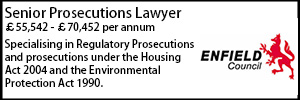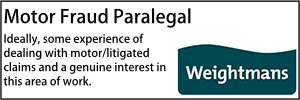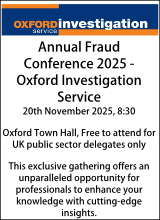Taskforce calls for national licensing policy framework and for licensing decisions to consider ‘agent of change’ principle
The Licensing Taskforce has recommended a set of licensing reforms, including the introduction of a National Licensing Policy Framework, in order to address a "lack of balance" in applying the Licensing Act 2003.
- Details
In a report from the taskforce - which was made up of representatives from Government, industry, police and local government - published on Friday (31 July), the group said the time to review the 20-year-old Act is "arguably overdue".
On introducing a national licensing policy framework, the report said: "The taskforce identified a lack of balance in applying many aspects of the Act to everyday licensing process and procedures, including due recognition of the cultural, economic, social impact and benefits of licensed premises.
"It was agreed that to successfully rebalance and deliver without the need for major legislative change, a National Licensing Policy Framework must be created which would allow delivery of government objectives around growth, high streets and fair regulation at the same time as addressing public order, crime and disorder and protection of vulnerable groups.
"This would also allow licensing delivery to remain at a local level whilst at the same time taking forward government objectives and strategic aims."
It also claimed the framework would reduce the likelihood of costly disputes or judicial reviews, alongside other "significant cost benefits" for industry and the public purse.
Elsewhere, the report recommended stronger guidance or a mandatory requirement for licensing authorities to ensure that the agent of change principle is considered when making licensing decisions, such as setting conditions on a licence.
In planning and development, the agent of change principle ensures that assignment of responsibility for mitigating noise and other nuisances falls on the new development rather than existing businesses.
While planning decisions must take into account the agent of change principle, there are no similar requirements for local authorities to consider this issue when making licensing decisions.
"Stronger links with the planning process to ensure that both elements actively consider the principle when making decisions. This could eventually be written in to planning and licensing law but in the meantime key elements can be delivered via the framework," the report said.
Elsewhere, the taskforce called for a one-time licensing condition 'amnesty' to mark the twentieth anniversary of the Act coming into force.
This proposed amnesty would apply to all licences, and "allow a focused opportunity to 'dust down' licences that have, for example, 'grandfathered' conditions from the pre-2005 regime, conditions that have been included due to blanket policies rather than the individual operation of the business, or have simply become outdated in the modern world", the report said.
The report also made recommendations on reforms for hearings and appeals, calling on the Government to strengthen the objections procedure for responsible authorities, to ensure they are backed by clear and transparent advice.
"This could be achieved via the introduction of a minimum evidence threshold for both conditions and objections through amendments to the section 182 guidance," the report said.
It added that the current process for hearings lacks a clearly defined threshold that must be met for an objection to be introduced, which can lead to an "oversaturation" of licensing hearings and require additional local authority resources.
In addition, the report recommended the introduction of an arbitration, evidence and data protocol for licensing decisions.
On this point, the report said: "Issues around evidence and data were identified by the taskforce as a consistent theme around many areas of licensing. This includes robust and fair justification and evidence for requirements to provide evidence to support objections, reviews and recommended conditions.
"Reviews are extremely costly, for example a sample of approximately 412 reviews costing an estimated £40,000 legal costs per review for operators – £16.4 million – and also impacting the public purse to the same amount or more."
The report said the proposed protocol could be developed to:
- define clear evidence standards and thresholds, to ensure consistency and transparency in how data and analysis underpin decisions
- provide structured mechanisms for applications and objections enabling affected parties to understand and address concerns or seek amendments to decisions on an informed and equitable basis
- set out comprehensive procedural safeguards, including defined timelines, rights of representation, and access to the evidence informing decisions
- enable the use of conditional or time-limited determinations, based on verifiable evidence and subject to regular review where appropriate
- provide clarity for related areas where these are not clearly set out in the Act or secondary legislation
Other recommendations made in the report included the removal of the hard-copy local newspaper advertising requirement for a new premises license or a full variation of a license, and removing regulatory barriers to help premises use their outside spaces.
The joint industry and HM government licensing policy sprint taskforce was established on 9 April 2025 and ran until 16 May 2025. The taskforce was co-chaired by Nick Mackenzie, CEO of Greene King, and Gareth Thomas MP, Minister for Services, Small Business and Exports.
Adam Carey
Trust Solicitor (Public & Healthcare Law)
Trust Solicitor (Employment & Contract Law)
Locums
Poll



























